On March 3, 1923, Time Published It’s First Issue. In This Prospectus, Founders Henry Luce And Briton



On March 3, 1923, Time published it’s first issue. In this prospectus, founders Henry Luce and Briton Hadden describe their vision for a news magazine “aimed to serve the modern necessity of keeping people informed, created on a new principle of COMPLETE ORGANIZATION.”
TIME The Weekly News-Magazine (A Prospectus). Time Inc. Records. New-York Historical Society.
More Posts from Philosophical-amoeba and Others
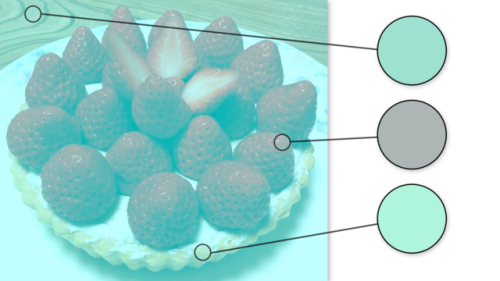
Hey resident neuroscientist @sixpenceee, wanna explain why the strawberries look red?
The day my sister, Jessica, discovered Comic Sans, her entire world changed. She’s dyslexic and struggled through school until she was finally diagnosed in her early twenties, enabling her to build up a personal set of tools for navigating the written world. “For me, being able to use Comic Sans is similar to a mobility aid, or a visual aid, or a hearing aid,” she tells me while we’re both visiting our family in Maryland. “I have other ways of writing and reading, but they’re not like they are for someone who’s not dyslexic.” The irregular shapes of the letters in Comic Sans allow her to focus on the individual parts of words. While many fonts use repeated shapes to create different letters, such as a “p” rotated to made a “q,” Comic Sans uses few repeated shapes, creating distinct letters (although it does have a mirrored “b” and “d”). Comic Sans is one of a few typefaces recommended by influential organizations like the British Dyslexia Association and the Dyslexia Association of Ireland. Using Comic Sans has made it possible for Jessica to complete a rigorous program in marine zoology at Bangor University in Wales. […] I asked Jessica to tell me what she’s up against. She’s been told that Comic Sans is “unprofessional. That it’s juvenile. That it’s stupid. That it basically shouldn’t be used for anything at all, unless it is a comic.” There are fonts that have been specifically created for people with dyslexia, all of which lack the clean minimalism or elegant balance and perfect kerning favored by typography snobs. But they are crucial disability aids. Some are free, such as Lexie Readable (which calls itself “Comic Sans for grown-ups”), Open-Dyslexic, and Dyslexie. Others are for purchase or are publisher-owned and unavailable to the general public. But for Jessica, Comic Sans is still the best. “I don’t use Open Dyslexic because it’s not as easy for me to read,” Jessica says. “It’s not my font. I was dyslexic before Open Dyslexic happened. My mind has been getting used to Comic Sans.” Not everyone with dyslexia uses Comic Sans to help them read and write. “Other people with dyslexia find that having colored paper makes it easier,” Jessica says. “Or some people find Arial easier.” Comic Sans and Arial are readily available because they are included by default in many operating systems and word-processing programs, and they are web-safe fonts.
Hating Comic Sans is Ableist by Lauren Hudgins on The Establishment. (via allthingslinguistic)

Science Fact Friday: Tetrodotoxin, ft. a small gif because I’m avoiding my real obligations. Why does tetrodotoxin not affect its host? More studies need to be done but at least a few species possess mutated sodium ion channels. The tetrodotoxin can’t interact efficiently with the altered channels.
Another interesting tidbit: Animals with tetrodotoxin can lose their toxicity in captivity. It is suspected that the animals accumulate the toxic bacteria as a side-effect of their diet. After several years of captivity on a tetrodotoxin-bacteria-free diet, the bacterial colonies living in the animals die, residual toxin is cleared from the system, and the animal is safe to handle.
Words to replace said, except this actually helps
I got pretty fed up with looking for words to replace said because they weren’t sorted in a way I could easily use/find them for the right time. So I did some myself.
IN RESPONSE TO Acknowledged Answered Protested
INPUT/JOIN CONVERSATION/ASK Added Implored Inquired Insisted Proposed Queried Questioned Recommended Testified
GUILTY/RELUCTANCE/SORRY Admitted Apologized Conceded Confessed Professed
FOR SOMEONE ELSE Advised Criticized Suggested
JUST CHECKING Affirmed Agreed Alleged Confirmed
LOUD Announced Chanted Crowed
LEWD/CUTE/SECRET SPY FEEL Appealed Disclosed Moaned
ANGRY FUCK OFF MATE WANNA FIGHT Argued Barked Challenged Cursed Fumed Growled Hissed Roared Swore
SMARTASS Articulated Asserted Assured Avowed Claimed Commanded Cross-examined Demanded Digressed Directed Foretold Instructed Interrupted Predicted Proclaimed Quoted Theorized
ASSHOLE Bellowed Boasted Bragged
NERVOUS TRAINWRECK Babbled Bawled Mumbled Sputtered Stammered Stuttered
SUAVE MOTHERFUCKER Bargained Divulged Disclosed Exhorted
FIRST OFF Began
LASTLY Concluded Concurred
WEAK PUSY Begged Blurted Complained Cried Faltered Fretted
HAPPY/LOL Cajoled Exclaimed Gushed Jested Joked Laughed
WEIRDLY HAPPY/EXCITED Extolled Jabbered Raved
BRUH, CHILL Cautioned Warned
ACTUALLY, YOU’RE WRONG Chided Contended Corrected Countered Debated Elaborated Objected Ranted Retorted
CHILL SAVAGE Commented Continued Observed Surmised
LISTEN BUDDY Enunciated Explained Elaborated Hinted Implied Lectured Reiterated Recited Reminded Stressed
BRUH I NEED U AND U NEED ME Confided Offered Urged
FINE Consented Decided
TOO EMO FULL OF EMOTIONS Croaked Lamented Pledged Sobbed Sympathized Wailed Whimpered
JUST SAYING Declared Decreed Mentioned Noted Pointed out Postulated Speculated Stated Told Vouched
WASN’T ME Denied Lied
EVIL SMARTASS Dictated Equivocated Ordered Reprimanded Threatened
BORED Droned Sighed
SHHHH IT’S QUIET TIME Echoed Mumbled Murmured Muttered Uttered Whispered
DRAMA QUEEN Exaggerated Panted Pleaded Prayed Preached
OH SHIT Gasped Marveled Screamed Screeched Shouted Shrieked Yelped Yelled
ANNOYED Grumbled Grunted Jeered Quipped Scolded Snapped Snarled Sneered
ANNOYING Nagged
I DON’T REALLY CARE BUT WHATEVER Guessed Ventured
I’M DRUNK OR JUST BEING WEIRDLY EXPRESSIVE FOR A POINT/SARCASM Hooted Howled Yowled
I WONDER Pondered Voiced Wondered
OH, YEAH, WHOOPS Recalled Recited Remembered
SURPRISE BITCH Revealed
IT SEEMS FAKE BUT OKAY/HA ACTUALLY FUNNY BUT I DON’T WANT TO LAUGH OUT LOUD Scoffed Snickered Snorted
BITCHY Tattled Taunted Teased
Edit: People, I’m an English and creative writing double major in college; I understand that there’s nothing wrong with simply using “said.” This was just for fun, and it comes in handy when I need to add pizzazz.
Where does the word ‘meme’ come from?

The word meme was originally coined in the 1970s by sociobiologist, Richard Dawkins, from the ancient Greek for imitation.

He used it to describe how ideas and symbols propagate through a culture like genes through a population.

With the advent of the Internet, the process became directly observable in how jokes and images were popularized at lightning speed and soon the word came to refer to a certain kind of image.

So ‘meme’ not only describes how words become part of language, the word is a meme itself. As it turns out, there’s a word for words that describe themselves: ‘autological’.

Spread the word! ;)
From the TED-Ed Lesson Where do new words come from? - Marcel Danesi
Animation by TOGETHER
Jumps, Explained
So, going by the tags on my recent jump gifsets, the difference between jumps is apparently still a source of great bewilderment for some people. Now I could link you to some excellent posts on the topic, but since I am, as usual, an extra lil piece of dirt with too much work to do and a lifetime’s worth of procrastination, I’ve decided to put together my own layman’s guide to identifying figure skating jumps (stressed on the layman part).
First, here be a flowchart, since everybody loves flowcharts, right?

If the flowchart works as intended and you can now tell the jumps apart, great! If you need a bit more explanation and illustration, read on.
Keep reading
It’s time for everyone to agree that octopuses aren’t from Earth
Today on the show, we talked about Inky, an octopus that recently escaped from a New Zealand aquarium. We had a hard time believing some of the things we heard about Inky’s “great escape” — so we started to snoop around on octopuses.
Turns out we didn’t know the half of it.
Here are just a few of the craziest things we learned about them:
1. Octopuses can taste with all of their skin, but especially well with their suckers
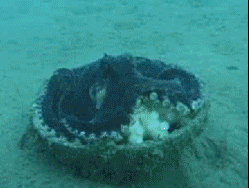
2. They can squeeze through tiny spaces very easily. A 100-lb. octopus can easily fit through an opening the size of an orange.
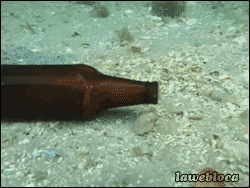
3. They’re also crazy strong. A 3-inch-diameter sucker on a giant Pacific octopus can lift 30 pounds.
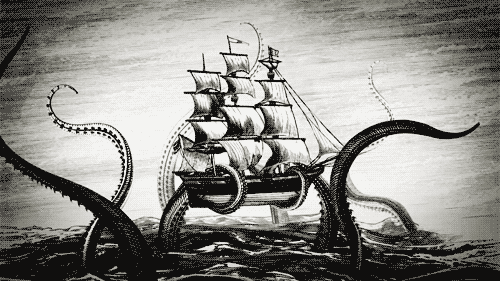
4. They’re brilliant camouflage artists, and can completely change color in a blink of an eye.
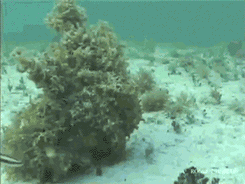
5. On a sad note, some octopuses have been known to eat their own arms. Scientists think it may be a response to stress or some kind of infection.

6. They actually escape from aquariums quite often. Octopuses are very curious animals, and are extremely effective problem-solvers.
They can also open jars. JARS THAT THEY’RE INSIDE OF.
In the end, Inky successfully made his way back to the sea, leaving only a trail of water from his tank to that drainpipe of freedom. 🐙
+heroes of nusantara: multatuli
YES, I, Multatuli, “who have suffered much,”—I take the pen. I do not make any excuses for the form of my book,—that form was thought proper to obtain my object…. I will be read! Yes, I will be read. I will be read by statesmen who are obliged to pay attention to the signs of the times; by men of letters, who must also look into the book of which so many bad things are said; by merchants, who have an interest in the coffee auctions; by lady’s-maids, who read me for a few farthings; by governors-general in retirement; by ministers who have something to do; by the lackeys of these Excellencies; by mutes, who, more majorum, will say that I attack God Almighty, when I attack only the god which they made according to their own image; by the members of the representative chambers, who must know what happens in the extensive possessions over the sea which belong to Holland….
Ay, I shall be read!

Eduard Douwes Dekker was born in Amsterdam, March 2nd 1820. His father was a ship’s captain and intended for his son to have a career in trade. This humdrum prospect disgusted Douwes Dekker and in 1838 he obtained a post as a civil servant on the island of Java. During the period between 1848 and 1851 Douwes Dekker eventually rose to serve as assistant resident in various regencies in the Indonesian archipelago including Natal, North Sumatra, Manado in Sulawesi and Ambon in the Moluccas. In 1857 he was transferred to Lebak, in the Bantam residency of Java (now Banten province). By this time, however, all the secrets of Dutch administration were known to him, and he had begun to openly protest about the abuses of the colonial system. Consequently, he was threatened with dismissal from his office for his openness of speech. Douwes Dekker resigned his appointment and returned to the Netherlands.
He was determined to expose in detail the scandals he had witnessed, and he began to do so in newspaper articles and pamphlets. Little notice, however, was taken of his protestations until, in 1860, he published his novel Max Havelaar under the pseudonym of Multatuli. Douwes Dekker’s new pseudonym, which is derived from Latin, means, “I have suffered much”, or, more literally “I have borne much” referring to himself, as well as, it is thought, to the victims of the injustices he saw. An attempt was made to suppress the inflammatory book, but in vain; it was read all over Europe. Apologists for colonialism accused Douwes Dekker’s horrific depictions of being exaggerated.

[ his statue in amsterdam ]
Although it was translated into English in 1868, the text wasn’t available in the author’s home country until over a century later in 1972. Collectively, Multatuli’s Max Havelaar has been translated into 34 different languages worldwide since its initial publication. Credited as the stirring initiation of the nationalist movement responsible for the termination of Dutch colonization of Indonesia following World War II, Max Havelaar’s legacy is not confined to literary accomplishment, but can be considered a work of great political success and inspired social liberation. Max Havelaar’s influence on the national movement ultimately culminated in the passionate command to end decolonization worldwide. The story of Max Havelaar illuminates the inhumane and political injustices brutally imposed upon the native peoples of the region.
Sigmund Freud listed Multatuli as one of his favorite writers. Multatuli’s brother, Jan Douwes Dekker, was the grandfather of Ernest Douwes Dekker (also known as Danudirja Setiabudi, a National Hero of Indonesia). There is a museum for him in Amsterdam. Multatuli is also known as the person who coined the term emerald of equator, a poetic nickname of Indonesia.

This book is an introduction…. I shall increase in strength and sharpness of weapons, according as it may be necessary. Heaven grant that it may not be necessary!… No, it will not be necessary! For it is to thee I dedicate my book: WILLIAM THE THIRD, King, Grand Duke, Prince,… more than Prince, Grand Duke, and King,… EMPEROR of the magnificent empire of INSULIND, which winds about the equator like a garland of emeralds!… I ask THEE if it be thine IMPERIAL will that the Havelaars should be bespattered with the mud of Slymerings and Drystubbles; and that thy more than thirty millions of SUBJECTS far away should be ill treated and should suffer extortion in THY name!
source: wikipedia; culture trip
quotes from bartleby, excerpt of max havelaar
further reading: paper on multatuli


Why did Vikings have ‘Allah’ embroidered into funeral clothes?
A new investigation into the garments - found in 9th and 10th Century graves - has thrown up new insights into contact between the Viking and Muslim worlds.
The breakthrough was made by textile archaeologist Annika Larsson of Uppsala University. To unlock the puzzle, she enlarged the letters and examined them from all angles, including from behind. Read on
-
 strangeandunusual1 liked this · 8 years ago
strangeandunusual1 liked this · 8 years ago -
 e-avenue reblogged this · 8 years ago
e-avenue reblogged this · 8 years ago -
 philosophical-amoeba reblogged this · 8 years ago
philosophical-amoeba reblogged this · 8 years ago -
 20drawnroses reblogged this · 8 years ago
20drawnroses reblogged this · 8 years ago -
 20drawnroses liked this · 8 years ago
20drawnroses liked this · 8 years ago -
 legionofsuperpets liked this · 8 years ago
legionofsuperpets liked this · 8 years ago -
 iakhan13 reblogged this · 8 years ago
iakhan13 reblogged this · 8 years ago -
 iakhan13 liked this · 8 years ago
iakhan13 liked this · 8 years ago -
 e-avenue liked this · 8 years ago
e-avenue liked this · 8 years ago -
 roiaobrienjewelry liked this · 8 years ago
roiaobrienjewelry liked this · 8 years ago -
 the1920sinpictures liked this · 8 years ago
the1920sinpictures liked this · 8 years ago -
 lblaetzprice liked this · 8 years ago
lblaetzprice liked this · 8 years ago -
 lizabethstucker liked this · 8 years ago
lizabethstucker liked this · 8 years ago -
 roundtableguest liked this · 8 years ago
roundtableguest liked this · 8 years ago -
 turk15156 reblogged this · 8 years ago
turk15156 reblogged this · 8 years ago -
 archerwhiterp reblogged this · 8 years ago
archerwhiterp reblogged this · 8 years ago -
 forgetful-amoeba liked this · 8 years ago
forgetful-amoeba liked this · 8 years ago -
 archerwhiterp liked this · 8 years ago
archerwhiterp liked this · 8 years ago -
 the-life-and-times-of-a-nerd reblogged this · 8 years ago
the-life-and-times-of-a-nerd reblogged this · 8 years ago -
 detroitlib liked this · 8 years ago
detroitlib liked this · 8 years ago -
 nyhistory reblogged this · 8 years ago
nyhistory reblogged this · 8 years ago
A reblog of nerdy and quirky stuff that pique my interest.
291 posts